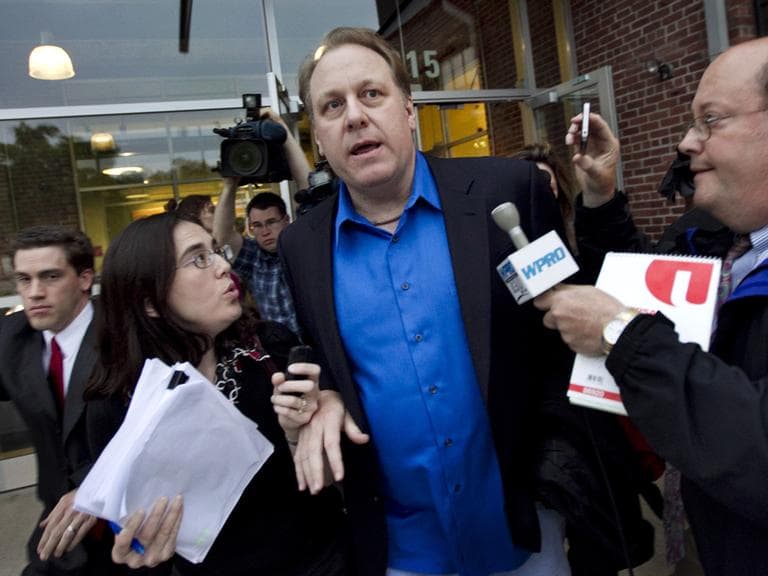Advertisement
COMMENTARY
38 Studios And Schilling's Hypocrisy

Who can fault Curt Schilling for wanting to build a post-baseball career on another of his passions?
Nobody, I think. He was confident that he could gather people who'd build some cool video games. He wasn't going to be one of those aging ballplayers who sits around re-living his glory days, though certainly he had his share of them, having won championships with both the Diamondbacks and the Red Sox. Instead he was going to break new ground as an entrepreneur.
But that's not to say Schilling can't be faulted for his business plan, or for the way he's handled the apparent collapse of 38 Studios.
Analysis after the fact is easy and cheap, and if the one game actually marketed by Schilling's company had sold a couple million more units than it did, maybe people would be referring to him as the Cy Young of video game development.
Lots of people don't like loudmouths, especially after they stop winning ballgames and start blaming their benefactors for not giving them even more.
But it didn't. Despite an infusion of money from the state of Rhode Island large enough to provoke the relocation of his company from Massachusetts, Schilling found himself in need of help from a governor unwilling to toss good money after the largess extended by his predecessor.
Despite assurances to his employees that 38 Studios would rise again, it didn't.
That news would be worse if competing companies hadn't set up job fairs to recruit the people previously employed by 38 Studios, even before the company tanked. Apparently that's the way it works in the world of video game development. The news would have saddened more people if so many of them hadn't been put off by what they saw as Schilling's hypocrisy: he railed loudly against so-called "big government," then built his company on an enormous government subsidy after he'd accepted $8 million for a baseball season during which he may have known he would not pitch. Lots of people don't like loudmouths, especially after they stop winning ballgames and start blaming their benefactors for not giving them even more.
Advertisement
Probably none of what Schilling did is immoral, let alone illegal. He merely took what two large organizations, the Boston Red Sox and the state of Rhode Island, were willing to hand him. That he didn't deliver the goods he'd promised cannot have surprised anyone familiar with baseball or businesses, and if there is a cautionary tale buried anywhere in the rubble of 38 Studios, it's perhaps that those entrusted with the public's money ought to beware of entrepreneurs whose autographs their grandchildren covet.
This program aired on May 30, 2012.
